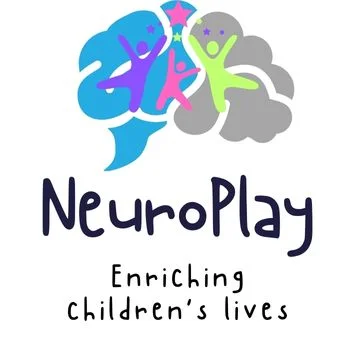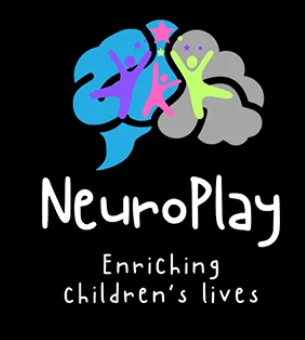ADHD in kids – A parent's guide
Parents want the best for their children. Unfortunately, a lack of knowledge about neurodevelopmental conditions & other disorders can be a barrier to providing the best level of care. This is most often seen in parents & guardians of kids who have ADHD. Sometimes, we just don’t know the best way to address this issue, but that’s why this blog is here for you.
ADHD is one of those conditions that has a lot of myths attached to it. People tend to misunderstand the disorder & discriminate against the people who have it. So, if you want to give your child the best care & support you can, then you should start by learning about ADHD.
What is ADHD?
ADHD stands for Attention-Deficit-Hyperactivity-Disorder. It is a neurodevelopmental condition that is characterized by patterns of impulsivity, inattention, & hyperactivity. While that might not seem like something that would severely impact our way of life, for people who have it, ADHD can significantly alter their relationships, academic performance, & even daily functioning.
That is not to say that everyone with ADHD acts the same way. There are different types of it. The predominantly inattentive type includes people who struggle with focus & staying on task, while the predominantly hyperactive-impulsive type includes people who act without thinking, are restless & fidget a lot. There are also people who exhibit symptoms of both.
Because of how different life can be for people with ADHD, there are a lot of misconceptions that are prevalent. Some believe that ADHD is the result of laziness & poor discipline, but that is not the case. Research shows that it is actually caused by neurodevelopmental differences, & although there is no “cure,” there are plenty of ways to manage those symptoms.
Getting an ADHD diagnosis
Children tend to exhibit symptoms of ADHD before or around the age of 12. If you notice that your child has trouble focusing on schoolwork, often interrupts others when they are speaking & is restless, it is advised to take them to a professional for a proper ADHD diagnosis.
A proper diagnosis requires a thorough assessment from a psychiatrist or psychologist. The professionals at NeuroPlay are all trained & certified to conduct evaluations, which would include interviews, questionnaires, & behavioral assessments.
Our diagnosis will be based on the criteria stated in the Diagnostic & Statistical Manual of Mental Disorders (DSM-5) & will consider all aspects. We will help you understand whether your child does have ADHD or a similar condition so you can better support them. Reach out to us at any time. We’re here to support you!
Therapeutic approaches for ADHD to consider
There are various therapeutic approaches that you should consider to help your child manage their symptoms better.
Cognitive behavioral therapy
Cognitive behavior therapy is the standard when it comes to ADHD psychotherapy. It can help kids overcome their challenges, such as procrastination & poor planning, by identifying practical coping strategies & managing emotions that interfere with their goals. It is great if you want to encourage your child to adapt & gain a strong focus that is essential for organization.
Art therapy
Creativity is therapy itself, & you can see that for yourself in art therapy. It is a distinct discipline that revolves around encouraging children to express themselves through visual art. Don’t underestimate it. Art therapy can help children with ADHD build strong mental focus, hone problem-solving skills, & become more proficient communicators.
Dialectical behavior therapy
Dialectical behavior therapy involves mindfulness, emotion regulation, distress tolerance, interpersonal effectiveness, & the management of impulsivity & hyperactivity. It can help kids with ADHD find the focus they need to finally break away from procrastination & reach their goals, academic or otherwise.
Mindfulness-based cognitive therapy
Mindfulness & meditation are research-backed ways to treat the mind & mitigate some of the most debilitating symptoms of ADHD. Mindfulness-based cognitive therapy improves the functioning of the brain & improves attention while also helping children observe their emotional states with greater efficacy.
Coping strategies from certified therapists
Apart from therapy, there are various strategies & techniques you can try out to help your child. Many parents use sensory toys or fidget tools to give kids an outlet to vent their restlessness & calm them. Others tend to take a more traditional approach & limit sugar & stimulants like caffeine since they can destabilize a child’s energy levels quite a bit.
To help your child focus, you can also do your best to minimize external noise when they are studying. Noise-canceling headphones are a great way to help them block out disruptive background noise & concentrate on their goals.
Even if you do these things, the challenge of procrastination will likely still remain. It is important that you take your time & work out a schedule with your child. Set clear & firm deadlines for every task to create a sense of urgency. To-do lists are great but can be overwhelming for some children with ADHD, so make sure you support them by helping them organize & prioritize.
Stay supportive & empower your child
Finally, be patient. Children with ADHD have a difficult road as it is. A little support goes a long way. If you have more questions or want to reach out to us for an ADHD diagnosis, then please do not hesitate to contact us.

